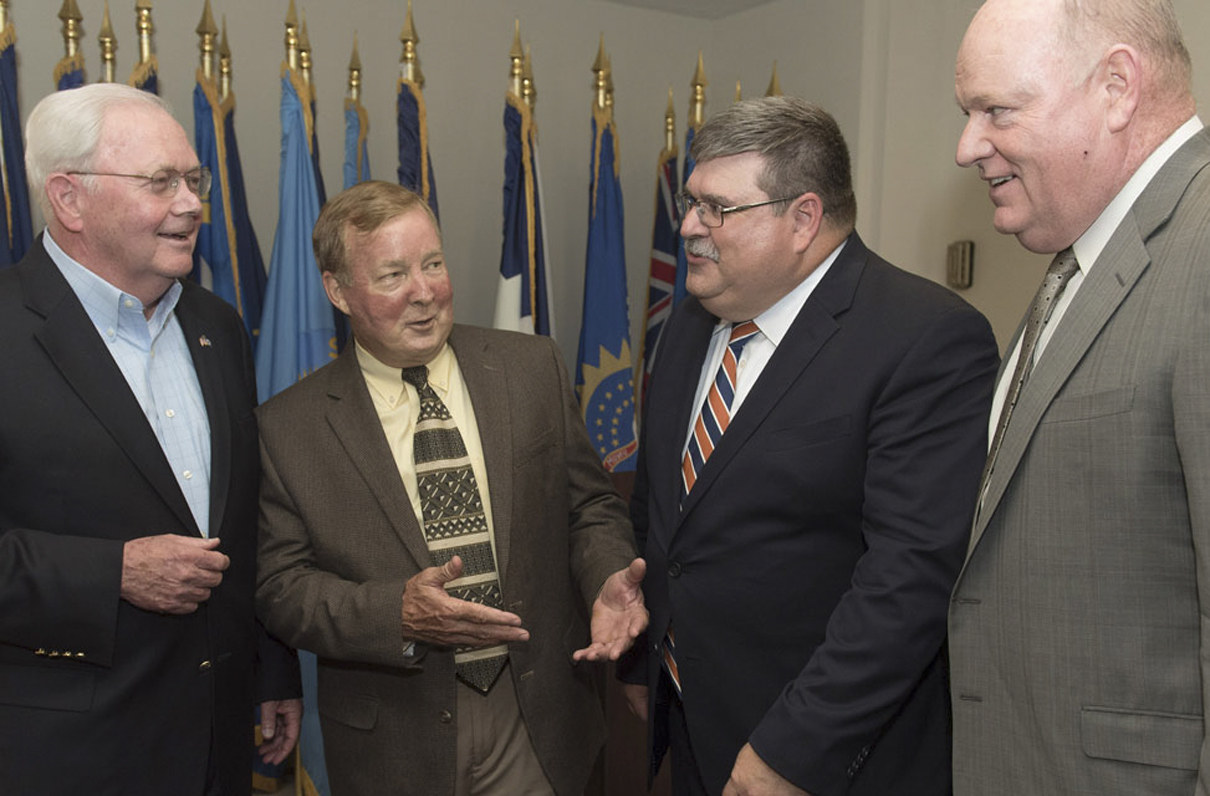As uncertainty hangs over the future of the Veterans Affairs system, top officials said groups like MOAA will be vital in shaping new health care policies.
Retired Marine Col. Tom Bowman, who was serving as the VA's deputy secretary, spoke alongside Senate Veterans Affairs Committee leaders Sen. Johnny Isakson, R-Ga., and Sen. Jon Tester, D-Mont., during a Tuesday reception in Washington, D.C. All three acknowledged being concerned about the VA's future, but said they are encouraged when working with veteran service organizations.
Related reading: Senate Approves Big Changes to VA Health Care
“I think the VA is at a very critical point in time,” said Bowman, who served as former VA Secretary David Shulkin's deputy. “I think the VA is turning a corner. The question is, 'What's around the corner and how well is it going to serve the needs of veterans?”
Bowman and the senators spoke at a thank-you reception for three VA leaders, including Bowman, for their work in the department and government. Bowman served more than 15 years at the VA, where he previously served as the Chief of Staff to two VA secretaries, Deputy Chief of Staff and Senior Staff Advisor to the Secretary of Veterans Affairs.
Related reading: MOAA President Talks VA Mission Act on 'Government Matters' TV Show
The VA has been under scrutiny in recent months for major shake-ups in leadership after President Donald Trump removed Shulkin and nominated the White House physician, Rear Adm. Ronny Jackson, to take his place. Jackson later withdrew from consideration after allegations of misconduct and mismanagement surfaced. Trump later nominated Robert Wilkie to serve in the agency's top role.
The VA again made headlines when it was revealed that about half of its nursing homes received low rankings in 2017. The department responded by releasing a report this month showing efforts to improve conditions at its 133 nursing homes.
The department has also been a lightning rod for discussion as lawmakers battled to pass the VA Mission Act, a federal law that streamlines community care programs and extends caregiver benefits to more disabled veterans' families. Some on Capitol Hill are concerned about the funding the Mission Act will require. The bill had the backing of more than 30 veteran service organizations, though, including MOAA.
Trump signed the VA Mission Act into law on June 6. Getting the bill passed was a prime example of the power behind VSOs, Tester said. The line of communication between lawmakers and the organizations' leaders ensures veterans are receiving the care and resources they need, he said.
“I'd be lying to you if I didn't tell you I'm really worried about the VA right now,” he said. “The role that the VSOs have about the future of the VA about what's around the corner is going to be critical.”
Despite his concerns, Tester said he remains committed to supporting the VA after seeing the high level of care veterans in his home state receive at its treatment facilities.
Isakson, a Georgia Air National Guard veteran who served during the late 1960s, echoed that sentiment. Passing the VA Mission Act was a significant victory for veterans, he said. Now it's important to track its success.
“We need to make the Mission bill our mission to see that it's a reality,” he said. “If veterans can win the battles … around the world and around the country, then by golly we can win this one for them.”
Amanda Dolasinski is MOAA's staff writer. She can be reached at amandad@moaa.org. Follow her on Twitter @AmandaMOAA.
